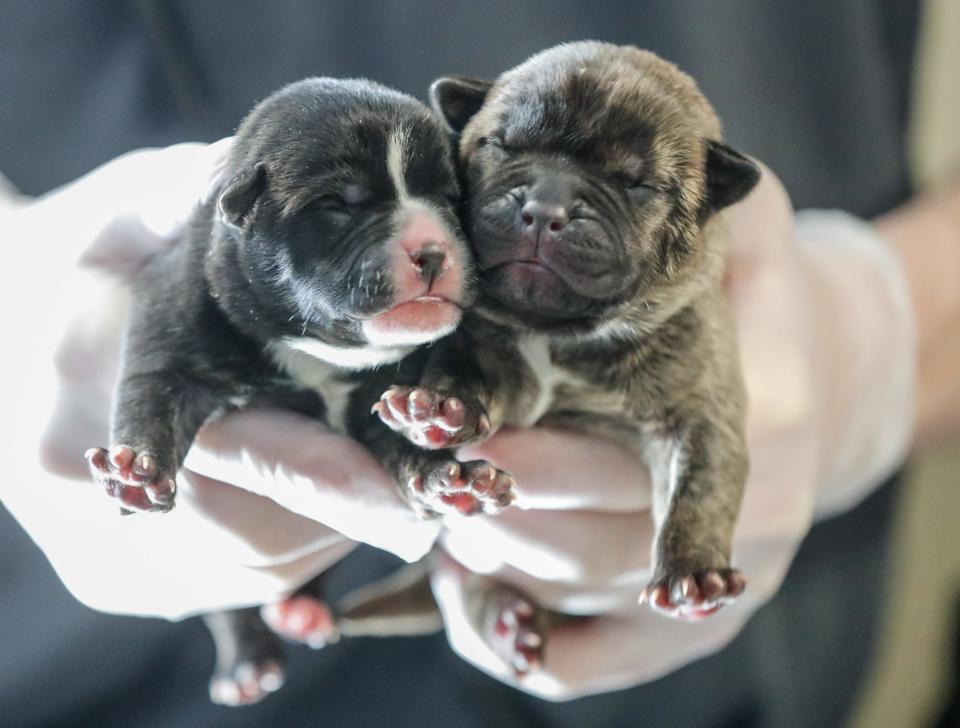Op/Ed: Bills have it backward by protecting inhumane pet stores not pets in Indiana
A battle is brewing at the Statehouse pitting a multinational Ohio-based corporation tied to the sale of sick puppies and local Indiana communities determined to retain their right to regulate problematic puppy-selling pet stores. As a Hoosier who has dedicated my life to animal welfare, it’s disappointing to see state lawmakers entertaining Petland’s bid to protect the controversial and outdated business model of selling dogs from cruel puppy mills.
Last month saw the introduction of Senate Bill 134 and House Bill 1121, which would prohibit Indiana cities and towns from adopting or enforcing ordinances to stop pet stores from selling puppies. Its approval would effectively void 14 existing humane pet store ordinances across the state, all of which local governments put in place to protect animals and consumers from the puppy mill-to-pet store pipeline.
More:Carmel pet stores unable to sell cats, dogs under new ordinance
Public records (puppy import certificates and federal and state breeder inspection reports) show Indiana pet stores recently sourced puppies from puppy mills with terrible animal welfare records, including one Iowa mill with 444 dogs on its property and a history of denying veterinary care to dogs with abnormal eye conditions. Other kennels supplying puppies to Indiana pet stores were cited for having dogs with open wounds and filthy conditions, including excessive feces and dirty feeders and water bowls. Other findings include dogs attacking each other, including a dog whose leg was bitten off by another dog. Puppy brokers utilized by Indiana pet stores have also been cited for a parvovirus outbreak killing 13 puppies, for sick puppies and for puppies dying after a transport vehicle overheated.
The case against the new legislation is simply stated. SB 134 and HB 1121 would protect and reinforce this cruelty by requiring communities to allow these puppies to be sold in local pet stores. This legislation is underserving of the legislature’s attention.
Vocal opposition from local elected officials, animal control officers, shelters, veterinarians and concerned residents resulted in amendments concerning “breeder standards” for pet stores. As amended, the bill would stop cities from regulating puppy-selling pet stores only if the stores source their puppies from breeders meeting certain criteria. This might sound reasonable on paper, but these standards are unenforceable, so they pose no real difficulty for puppy-selling pet stores associated with problem breeders.

Proponents of the amendment seem to think that local animal control officers and police officers have the resources and expertise to track where puppy-selling pet stores source their puppies from and then determine if those sources meet the proposed law’s standards, even though many of the suppliers are out-of-state breeders and brokers. It’s neither smart nor fair to place such a burden on these public servants.
There’s word that the legislation will be further amended to allow existing humane pet store ordinances to stay in place. This is an easy enough concession because this bill is about protecting the interests of one out-of-state corporation whose pet stores are unaffected by existing ordinances. Who cannot see that this is bad policy? If it’s a problem to void existing ordinances that protect animals and consumers, it’s a problem to stop future ones too.

We don’t need pet stores operating in such a callous manner in our state, especially when so many Hoosiers are working tirelessly to manage pet overpopulation in our communities. Indiana residents have plenty of options to obtain their next pets, including from shelters, rescues and our state’s humane, responsible breeders who sell directly to the public and have nothing to hide. And we certainly don’t need the state getting involved in protecting the most problematic channel of all — pet stores that source from substandard breeders whose inspection records put the lie to any claims that the animals were raised humanely and in healthy conditions.
Samantha Morton is the Indiana state director for the Humane Society of the United States.
This article originally appeared on Indianapolis Star: Legislators considering bills that protect inhumane pet stores

